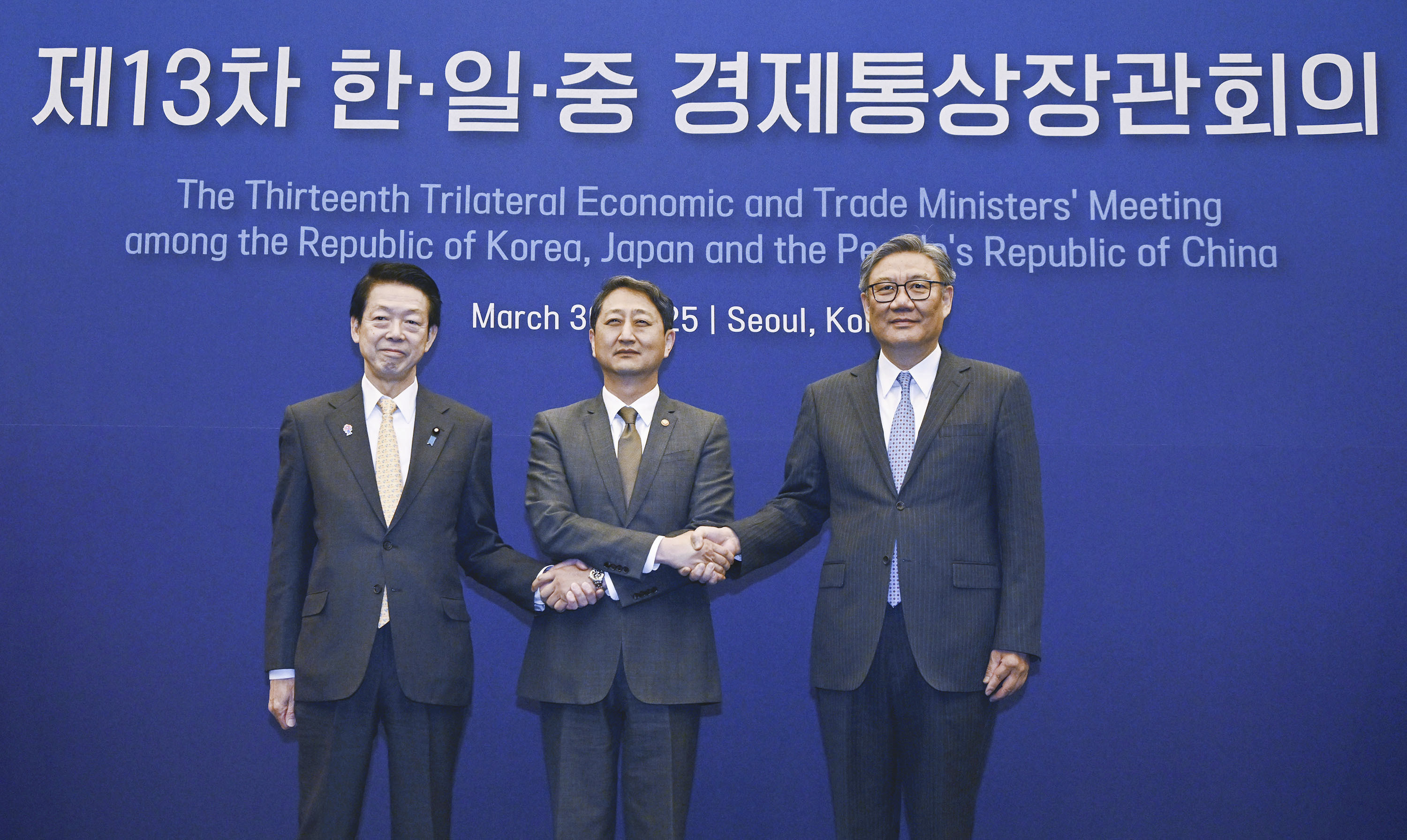America’s Asian allies are deepening economic ties with China as President Donald Trump’s tariffs threaten to upend their trading relationships with the U.S.
On Saturday, top trade officials from Japan, South Korea and China held their first trilateral economic dialogue in over five years, before stating their intention to enhance economic and trade cooperation with a view to signing a “free, fair, comprehensive, high-quality and mutually beneficial” free trade agreement in the near future.
Why It Matters
The agreement between three of Asia’s largest economies comes as countries brace for the impact of Trump’s tariffs, set to impact numerous sectors and nations across the continent and worldwide. The timing suggests that the president’s overhaul of America’s trading practices, while intended to rehome manufacturing in the U.S. and amend historic trade imbalances, could have the secondary effect of fostering closer cooperation between America’s allies and those conventionally considered its economic rivals.
(From L) Japanese Economy, Trade and Industry Minister Yoji Muto, South Korea’s Trade, Industry and Energy Minister Ahn Duk Geun and Chinese Commerce Minister Wang Wentao pose for a photo ahead of their trilateral talks in Seoul on March 30, 2025.
Kyodo via AP Images
What To Know
China, Japan and South Korea are all among America’s most significant trading partners, with total goods trade totaling an estimated $582 billion, $228 billion and $197 billion in 2024, respectively, according to U.S. government data. Japan and South Korea are also critical exporters of vehicles and car parts to the U.S., according to S&P Global, and among the top suppliers of steel to the U.S. All three countries have also historically run high trade surpluses with the U.S.
As a result, the East Asian giants are expected to be among the hardest hit by Trump’s recently announced automobile tariffs, as well as the in-effect duties on steel imports and the reciprocal tariffs due to take effect on April 2—dubbed “Liberation Day” by the White House.
Saturday’s meeting featured South Korean Industry Minister Ahn Duk-geun, Japanese Industry Minister Yoji Muto, and Chinese Commerce Minister Wang Wentao. According to a statement released following the trilateral meeting in Seoul, the first of its kind since December 2019, the group will “work to ensure a global level playing field to foster a free, open, fair, non-discriminatory, transparent, inclusive and predictable trade and investment environment.”
What People Are Saying
The trade ministers of the Republic of Korea, Japan and the People’s Republic of China, in a statement following their meeting, said: “We keep discussions for speeding up negotiations for a Trilateral [free trade agreement] with a view to realizing a free, fair, comprehensive, high-quality and mutually beneficial [agreement] with its own value.”
U.S. President Donald Trump told reporters on Sunday that the reciprocal tariffs beginning Wednesday would apply to all countries. “You’d start with all countries,” he said. “So let’s see what happens.”
Japan’s Chief Cabinet Secretary Yoshimasa Hayashi, as quoted in Asia Times, said he had “strongly urged” Trump to exempt Japan from the tariffs on auto imports, adding that these will have a “large impact on bilateral economic ties, the global economy and the multilateral trading system.”
South Korean Trade Minister Cheong In-kyo, quoted by The Korea Times, said: “We are making thorough preparations to respond to the U.S. announcement on reciprocal tariffs, set for April 2. We have been in continuous negotiations with the U.S. to best protect our companies’ interests.”
What Happens Next?
Following their meeting, described as an “essential platform for advancing trilateral economic and trade cooperation,” the three ministers agreed to convene their next ministerial meeting in Japan, though the date of this was not revealed.
Trump’s reciprocal tariffs are scheduled to take effect on Wednesday, with automobile import duties set for Thursday. Additionally, the White House has announced that tariffs on certain imported automotive parts will be enforced by May 3 at the latest.


